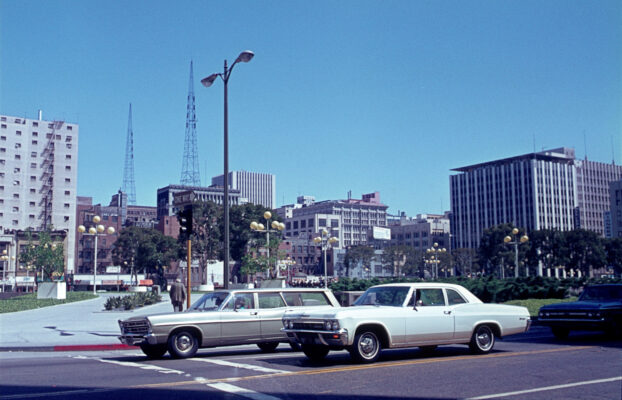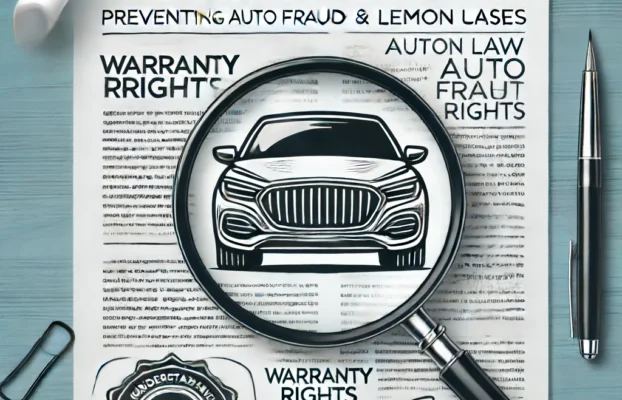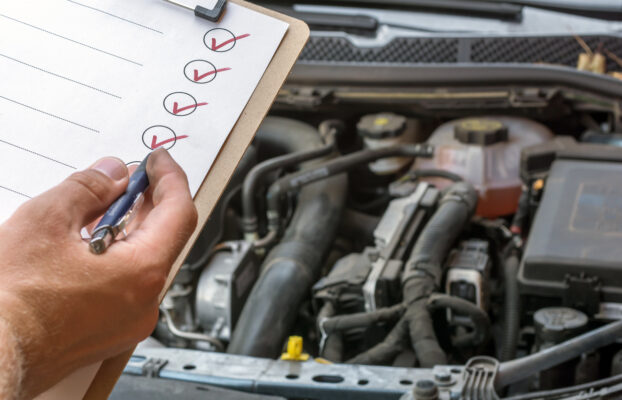What Does Toyota Owe You For Your Lemon? 1. Down Payment refund 2. all monthly payments 3. rental and repair costs 4. full bank loan payoff 5. complete lease refund
Pay Us Nothing Even if We Win Your Toyota Lemon Law Case.
Is Your New Toyota a Lemon?
Did Your Toyota Come With a Warranty?
Get Your Full Refund
Toyota Lemon Law Alert: 2022–Present Vehicle Defects, Recalls & Unreliability
Table of Contents
Introduction: Toyota’s Recent Reliability Challenges
Toyota has built a reputation for reliability, but even Toyota owners have encountered serious issues in recent years. If you’ve bought a Toyota in 2022, 2023, or 2024, you might be surprised by the number of defects, recalls, and complaints affecting various models. From SUVs like the RAV4 to sedans like the Camry, drivers nationwide are reporting problems that range from annoying rattles to major safety hazards. In this report, we’ll break down all the known issues – big and small – plaguing Toyota vehicles since 2022. Most importantly, we’ll explain how these problems could entitle you to relief under California’s lemon law. (Yes, even dependable Toyota can produce a “lemon.”) By understanding these defects and your consumer rights, you’ll be empowered to take action. And if you need help, an experienced Toyota lemon law lawyer at Sierra Litigation is ready to assist. 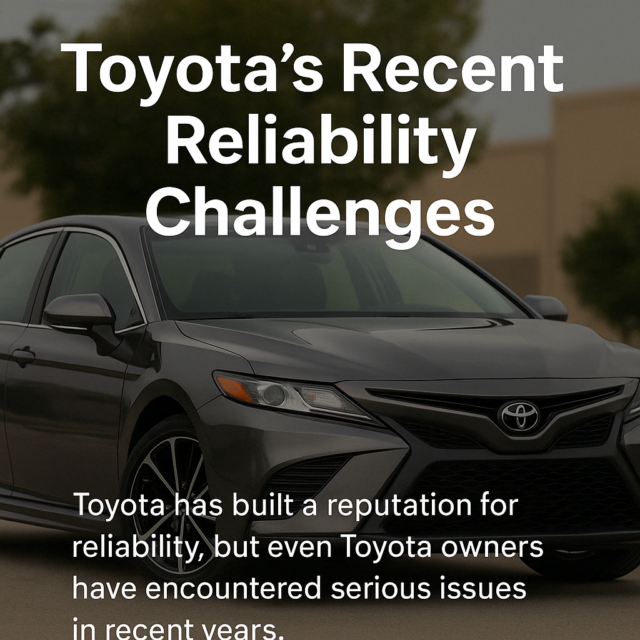
Common Toyota Defects and Recalls (2022–Present)
Toyota has initiated numerous recalls and faced many consumer complaints since 2022. Below is an overview of the most common defects and safety issues reported in Toyota models during this period:
Fuel Pump Failures: Millions of Toyotas were equipped with defective fuel pumps (made by Denso) that could fail and cause the engine to stall. This led to a massive recall and a class-action settlement. Affected vehicles spanned many models (Camry, Corolla, Avalon, Sienna, Highlander, 4Runner, Tacoma, Tundra, RAV4 and more) mainly from the 2013-2019 model years. By 2022, Toyota extended warranties on these fuel pumps and replaced them for free because sudden stalling is a serious safety risk on the road. Owners had complained of their cars losing power while driving, which is terrifying on highways or busy streets.
Engine & Powertrain Defects: Toyota’s newer engines haven’t been trouble-free. Notably, the 2022–2023 Tundra pickup (with the new twin-turbo 3.5L V6 engine) had an alarming defect: leftover metal shavings from manufacturing could cause rough running and power loss in the engine. In mid-2024, Toyota issued a recall to replace the entire engine in over 100,000 Tundras (and the related Lexus LX SUV) because of this issue. Similarly, some 2022 Tundra trucks have a design flaw where a fuel line can rub against a brake line and cause a fuel leak – a dangerous situation that sparked another safety recall and a lawsuit. Other powertrain complaints include rough or delayed shifting in automatic transmissions (more on that below) and even reports of engines that hesitate or struggle to start in newer Camry and Corolla sedans.
Transmission Troubles: Multiple Toyota models have experienced transmission problems since 2017, and issues persist in the 2020s. Owners of the Highlander SUV and Sienna minivan (both using Toyota’s 8-speed Direct Shift automatic) have reported harsh shifts, jerking, or hesitation during acceleration. These issues were frustrating enough that a class-action lawsuit was filed on behalf of 2017–2020 Highlander and Sienna owners, claiming the 8AT transmission is defective. Toyota has issued software updates for some transmission control modules, but many drivers still find the shifting performance subpar. On the Tacoma pickup (2016–2023 models), the older 6-speed automatic transmission is also a sore point – drivers complain of gear hunting and sluggish response, which can affect drivability. While Toyota often calls these characteristics “normal,” they can significantly impact your daily driving experience. If a dealer can’t fix persistent transmission quirks after several visits, you might be dealing with a lemon.
Steering, Suspension & Drivetrain: Toyota trucks and SUVs have had a few mechanical defects leading to recalls. In early 2024, Toyota recalled 2022–2023 Tacoma trucks (about 330,000 vehicles) because the rear axle assembly had improperly finished parts. The defect could cause axle nuts to loosen and even let pieces of the axle detach while driving – obviously a major safety hazard with risk of a crash. Dealers were instructed to inspect and repair the Tacomas’ axles to prevent catastrophic failures. Separately, some owners of all-wheel-drive and 4×4 models (like RAV4 or 4Runner) have complained of drivetrain vibrations or noises at certain speeds. While not every noise indicates a defect, unusual clunking, whining or vibration that the dealer can’t fix may be a sign of a deeper issue in the vehicle’s transfer case, differential, or suspension. Toyota also had a recall on the 2020–2021 Toyota Venza (a hybrid SUV) for a suspension part that could crack, and older Prius models for steering shaft issues – indicating that even the underpinnings of Toyota vehicles have occasionally been problematic.
Electrical & Software Glitches: Modern Toyotas are packed with technology, and some of that tech has been glitchy. Many owners across various 2022–2024 Toyota models have reported infotainment system failures – things like the touchscreen going blank, the audio cutting out, backup cameras not displaying, or the system rebooting randomly. For example, a few 2022 Camry drivers noted that multiple safety warnings (for collision sensors, braking, etc.) and the radio/nav system would malfunction all at once. Toyota issued software updates for certain models to address these bugs. Additionally, battery problems have cropped up, especially in hybrid models. Owners of the 2021–2023 Venza Hybrid and Sienna Hybrid (and some RAV4 Hybrids) have frequently found their 12-volt battery dead if the car sits for more than a few days. This was traced to higher parasitic drain from the new electrical systems. Toyota released a Technical Service Bulletin to reprogram some control units to reduce the drain, but some customers still ended up needing new batteries or jump-starts on nearly brand-new cars. Electrical gremlins like these can be incredibly frustrating – no one expects their new car to strand them with a dead battery or constantly flash error messages.
Safety System Failures: Some Toyota defects directly affect vital safety features. One major recall (late 2023) involved nearly 1 million Toyota and Lexus vehicles (2020–2022 models) because the Occupant Classification System (OCS) in the passenger seat could malfunction. The OCS is what tells the car if a passenger is small (like a child) or an adult, to deploy the airbag correctly. In the recalled cars, a sensor wiring issue could prevent the airbag from activating when it should, increasing the risk of injury in a crash. Affected models included popular ones like the Corolla, Camry, RAV4, Highlander, Sienna, and Tacoma among others. Toyota had to replace the sensor mats to fix this. Another scary defect emerged in the all-new 2023 Prius: water intrusion into the rear door latching mechanism could cause the rear doors to open while driving if they were unlocked. Toyota recalled about 55,000 of the 2023-24 Prius and Prius Prime in April 2024 to replace the electronic rear door latches after some owners experienced doors unexpectedly popping open – a major hazard, especially with kids in the backseat. These examples show that even critical systems like airbags and door latches have had issues requiring immediate attention. If your Toyota’s safety features (airbags, seat belts, door locks, collision sensors, etc.) aren’t working properly, that’s not something to take lightly or “wait and see” – it needs a fix or the vehicle may be unsafe.
Hybrid System & Engine Software Bugs: Toyota is known for its hybrids, but even these advanced vehicles have had hiccups. The 2022 Prius and Prius Prime (plug-in hybrid) were recalled because a software error in the engine control unit could shut the hybrid system down while driving. Imagine cruising along and suddenly your Prius throws an error and the engine stops – not a good feeling! Toyota fixed this with a software patch on roughly 8,400 cars. Hybrid RAV4 models from 2019–2021 had a well-publicized gas tank defect where owners couldn’t fill the tank to full capacity due to a design flaw. Many RAV4 Hybrid drivers found their 14.5-gallon tank would only accept ~9–11 gallons, leaving them short on driving range. Toyota eventually offered an extended warranty and some repairs for that tank issue (through a Customer Support Program), but no formal recall. It’s worth noting if you have a newer RAV4 Hybrid (2022+), Toyota claims the tank issue was resolved in production – yet a few owners still report fuel gauge inaccuracies or smaller-than-expected fill-ups. And in the fully electric realm, Toyota’s debut EV, the 2023 bZ4X, stumbled out of the gate with a shocking defect: wheels could literally fall off. The bZ4X was recalled within months of release because the hub bolts on the wheels could loosen. Toyota was so alarmed that they advised owners not to drive the EV at all until it was fixed – even offering to buy back the bZ4X from customers. (Thankfully, that issue was corrected with new hardware, and the recall was lifted.) These hybrid/EV issues show that new technology can bring new headaches, even from Toyota.
Body & Structural Issues: Not all defects are mechanical – some are about the car’s body and hardware. In late 2023, Toyota recalled over 750,000 Highlander SUVs (2020–2023 models) because the front bumper cover could detach partially from the vehicle after a minor impact. The issue was that the lower trim piece of the bumper might fall off and become a road hazard. Toyota’s fix was to add improved clips or replace the bumper if needed. Smaller-scale issues include things like door fitment, weatherstripping, and rattling interiors. Owners of various 2022+ Toyota models (from the Corolla to the Tundra) have reported wind noises, rattles, or water leaks from doors and windows. For example, some 2022 Tundra owners noticed the rear window or sunroof leaking during rain – traced to seals that weren’t seated perfectly. While these might be considered “minor” issues, they certainly affect your satisfaction with the vehicle. If your brand-new car sounds like a wind tunnel or has water soaking the carpet, that’s not acceptable quality. Toyota dealers have fixes for many of these problems (like re-sealing a windshield or replacing a door seal), but if the issue can’t be resolved after repeated tries, it could fall under lemon law as well.
Cracking Windshields: An odd but widespread complaint involves windshields cracking easily on some Toyotas. There have been reports (and even an active lawsuit) about the 2021-2022 Toyota Venza having a defective windshield that can crack or chip with minimal impact. Some Venza owners said their windshield cracked spontaneously or from the slightest pebble hit. Similar complaints have been noted for the latest generation RAV4 and Camry models, suggesting Toyota may be using thinner glass that is more prone to damage. While a windshield crack might be dismissed as “road hazard” in many cases, the sheer number of incidents raises concern that it’s a design or materials issue. A cracked windshield can be a safety issue (if it impairs vision or compromises the structural integrity in a crash), and if you’ve had to replace your Toyota’s windshield multiple times in a short span, it’s worth documenting and bringing up with the dealer. Toyota did launch a voluntary repair program for some owners complaining about this, but it’s on a case-by-case basis. Keep this in mind especially if you drive a 2020+ Venza or RAV4 – small chips can turn into big cracks quickly on some of these vehicles.
As you can see, no Toyota model is completely immune. Major models like the Camry, Corolla, RAV4, Highlander, Tacoma, Tundra, Sienna, Prius, Venza, and others have all experienced issues since 2022. These range from critical safety recalls to nagging quality problems. While Toyota addresses many defects via recalls or service bulletins, some problems persist for owners even after multiple repair attempts. If you’ve repeatedly taken your Toyota in for the same problem and it’s still not fixed, you’re likely frustrated – and you may have a lemon on your hands. Next, we’ll discuss how lemon law works in California and what you can do about a persistently faulty Toyota.
Recalls, Lawsuits, and California Lemon Law Complaints
Toyota’s challenges with defects have not gone unnoticed. There have been numerous recalls to protect consumers, as well as lawsuits and consumer actions when things went wrong. Here’s a brief rundown of how Toyota’s issues have played out across the nation: 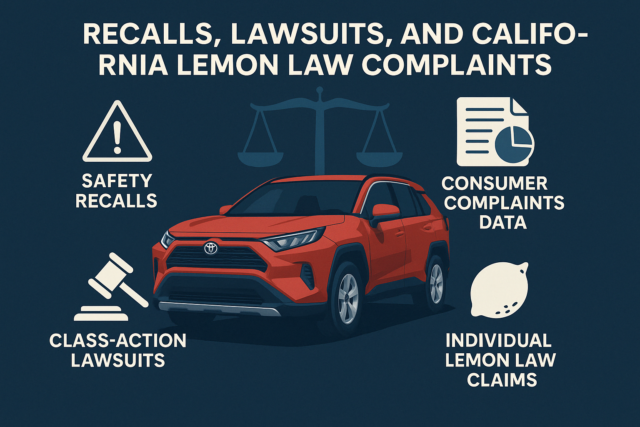
Safety Recalls: From 2022 to 2024, Toyota has issued safety recalls covering millions of vehicles. Some of the largest campaigns include the fuel pump recall (affecting 6+ million Toyota/Lexus vehicles), the Tundra engine replacement recall (~100k trucks), and the Highlander bumper recall (~750k SUVs). Other notable recalls were for airbag system faults, seatbelt problems, stalling risks, and fire hazards. For instance, Toyota recalled the 2022 Corolla Cross (its new small SUV) because the passenger airbag might not deploy due to a faulty dashboard piece; owners were told not to use the front passenger seat until it was fixed. They also expanded a recall for certain 2023 Corolla, Corolla Cross, Highlander, and Tacoma models to address manufacturing errors discovered after initial inspections. Even older models came under recall: Toyota had to re-urge owners of 2003–2005 models with unrepaired Takata airbags to stop driving until the deadly airbags were replaced. The takeaway is that Toyota has been very active in recalling vehicles to fix defects – which is good, but it also shows how many problems have arisen. If you receive a recall notice, always get the recall repair done ASAP for your safety. Recall fixes are free at dealerships. However, remember that even after a recall repair, some cars continue to have trouble (for example, an update might not fully resolve a software glitch). Keep records of any recall work and monitor if the issue truly goes away.
Consumer Complaints Data: Agencies like the National Highway Traffic Safety Administration (NHTSA) collect consumer complaints, and Toyota models have generated thousands of complaints in the last few years. Common themes in NHTSA complaints for 2022–2023 Toyotas include sudden stalling, loss of power, electrical fires or burning smells, brakes not responding, transmission jerking, and airbags not deploying. On forums and social media, Toyota owners have been very vocal too. For example, on a popular RAV4 forum, there are lengthy threads about RAV4 transmissions shifting erratically and batteries dying. Tacoma owners on truck forums swap stories about torque converter shudder and dealer “fixes” that don’t help. It’s not just internet noise – these complaints often mirror what official service bulletins address. If you’re experiencing an issue, chances are other Toyota drivers have reported the same problem. A good tip is to search online for your car’s year and problem (say, “2022 Camry infotainment freezing”) – you might find a service bulletin or recall you weren’t aware of, or at least confirmation that you’re not alone. Keeping documentation of your complaints (and the fact that it’s a known issue) can be useful in a lemon law claim.
Class-Action Lawsuits: When widespread problems aren’t adequately fixed, lawsuits can follow. Toyota has faced several class actions recently. The fuel pump defect resulted in a huge class-action settlement in late 2022 – Toyota ultimately agreed to extend warranties and compensate owners, spending an estimated $150 million or more. Another class action in California targeted the 8-speed automatic transmissions in the Highlander and Sienna, claiming Toyota knowingly sold vehicles that have rough shifting issues. There’s also ongoing litigation about the 2021 Venza’s windshield (owners allege Toyota should recall or replace the easily cracking windshields), and a class action regarding the Toyota Mirai hydrogen fuel-cell car, where owners argue Toyota misrepresented the availability of hydrogen fuel stations (making the car impractical to use). While those latter suits don’t involve mechanical defects, they underscore that Toyota has hit bumps in customer satisfaction on multiple fronts. If a class-action lawsuit exists for the specific problem your car has, you might receive a notice to join or claim benefits – but even if not, lemon law might get you a direct remedy (often faster than a class action outcome).
Individual Lemon Law Claims: Many Toyota owners have successfully pursued individual lemon law buybacks or replacements. You won’t see these in the news, but as a lemon law firm, we see patterns. For example, we’ve helped Toyota owners get relief for persistent engine warning lights and loss of power in RAV4s, repeated audio system failures in Tacomas, chronic brake system warnings in Camrys, and hybrid system malfunctions in Priuses. In these cases, the dealerships often tried multiple repairs – updating software, replacing parts – but the problems kept coming back. Eventually, the owners said “enough is enough” and we helped them demand a repurchase under the lemon law. Toyota (like most automakers) will fulfill its legal obligations when clearly presented with a qualifying lemon case. But it often takes an experienced attorney to navigate the process and push for a fair resolution. The good news is that California’s laws are firmly on the consumer’s side when your new car is defective. We’ll explain that next.
Your Rights Under California Lemon Law (Toyota Owners)
California’s Lemon Law (the Song-Beverly Consumer Warranty Act) protects you if you buy or lease a new vehicle that turns out to be defective and can’t be fixed in a reasonable number of attempts. This law covers new Toyotas (and even certified pre-owned or demonstrator vehicles) that are still under the manufacturer’s warranty. Here’s what Toyota owners in California need to know: 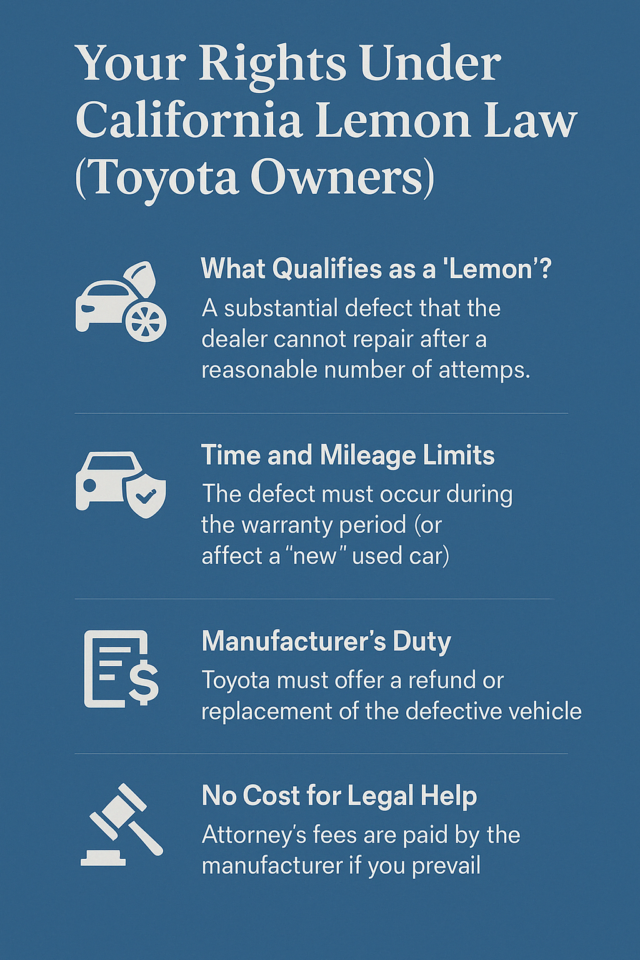
What Qualifies as a “Lemon”? Generally, a car is considered a “lemon” if it has a substantial defect that affects its use, safety, or value, and the manufacturer’s authorized repair shop (the dealership) cannot repair the issue after a reasonable number of attempts. “Substantial defect” doesn’t mean your paint has a tiny scratch – it means something like the engine stalls, the transmission won’t shift properly, the brakes malfunction, the airbags don’t work, or even chronic electrical problems that make the car unreliable. Many of the Toyota issues we discussed (stalling, power loss, brake issues, etc.) definitely qualify as substantial. The law doesn’t specify an exact number of repair attempts, but California provides a guideline: if you’ve tried to fix the same problem at least 2 times for a serious safety issue (like brakes or airbags) or 4 times for a less dangerous but persistent issue, OR if your car has been out of service for 30+ days total for repairs, it likely meets the standard. Even if you’re just close to these numbers, don’t give up – you might still have a case, especially with clear documentation.
Time and Mileage Limits: The defect must have arisen during the warranty period (which for Toyota is typically 3 years/36,000 miles basic warranty, and 5 years/60,000 miles powertrain). It doesn’t mean you had to file the lemon law claim by then, but the issues need to have been present and reported while under warranty. So if your 2022 Toyota started having transmission trouble at 20,000 miles and you took it in several times under warranty, you can still pursue a lemon law claim at 40,000 miles (even if by then the warranty is expired). What matters is that the problems were documented with the dealer during the coverage period. For hybrid components, remember Toyota gives longer warranties (8 years/100k on hybrid system in California), so hybrid-related defects have an even longer window. Important: California lemon law also covers “new” used cars – if you bought a 2022 Toyota used, but it was still under the factory warranty and you encounter these unresolved defects, you have rights too. Always keep copies of repair orders and receipts to prove your repair attempts and days out of service.
Manufacturer’s Duty: If your Toyota is deemed a lemon under the law, Toyota must either replace your vehicle with a comparable one or refund your money (your choice, with some exceptions). A refund would generally include your down payment, monthly payments made, and paying off any loan balance, minus a usage fee for the mileage you drove trouble-free. They also cover things like towing and rental car costs you incurred due to the defect. In other words, the goal is to make you whole as if you never purchased that defective car. If you opt for a replacement, it would be a new vehicle of the same model or equivalent, and Toyota can’t charge you anything beyond maybe the usage/mileage offset. Sierra Litigation can help advise which option (refund or replacement) makes sense in your situation. We’ve seen Toyota try to offer an extended warranty or a goodwill payment instead of a buyback – but remember, you are entitled to a full repurchase or replacement under the law, and you don’t have to settle for less if you truly got a lemon.
No Cost for Legal Help: A great aspect of lemon law cases is that if you win, Toyota has to pay your attorney’s fees and costs. This means it typically costs you nothing out-of-pocket to get a lemon law lawyer on your side. At Sierra Litigation, we don’t charge clients upfront for lemon law cases – we seek our fees from the automaker as part of the settlement. This makes it accessible for consumers to get legal help, even if finances are tight after dealing with car repair bills. Toyota has a large legal team and established processes for handling lemon claims, so having your own attorney evens the playing field. In most cases, manufacturers prefer to settle valid lemon claims before they ever reach a courtroom. Our job is to present the evidence clearly and negotiate the best outcome for you.
In summary, California lemon law gives Toyota owners a powerful remedy when their new vehicle isn’t living up to the promises of reliability and safety. But you have to take action: keep detailed records, give the dealer a chance to fix the issues, and if they can’t, don’t hesitate to escalate the matter. This is where Sierra Litigation comes in to guide you through the next steps.
How Sierra Litigation Helps Toyota Lemon Owners
Dealing with constant car problems is exhausting – but you don’t have to fight this battle alone. Sierra Litigation is a California-based lemon law firm that has helped many Toyota owners get justice when their vehicles turned out to be defective. Our attorneys focus exclusively on lemon law, and we understand the tactics and procedures needed to make auto manufacturers pay attention. Here’s what we offer to Toyota drivers facing repeated issues:

Expert Evaluation of Your Case: Not sure if your situation qualifies as a lemon? We’ll review your repair records and listen to your story. We know the common Toyota defects and how they impact your rights. Whether you’re struggling with a stalling engine in a RAV4, constant check engine lights on a Corolla, brake failures in a Camry, or any other recurring problem, we can quickly gauge if it meets the lemon law criteria. We often spot extra issues in the repair history that strengthen your case (for example, maybe the dealership notes show multiple attempts for a problem you didn’t realize count as separate repair attempts).
Guidance and Communication: Once we take your case, we handle all communications with Toyota and its representatives. No more stressful calls or visits to the dealership service manager pleading for help – we step in and present the legal demand to Toyota on your behalf. Our team gathers all necessary evidence (repair orders, technician notes, recall info, etc.) and constructs a compelling argument under the lemon law. We keep you informed at every step in plain language – you’ll know what to expect and the likely timeline. Our goal is to make the process as hassle-free for you as possible, especially after you’ve already dealt with the hassle of a broken car.
Statewide Service in California: Sierra Litigation proudly serves clients all across California. Whether you’re in a large city or a rural area, we can assist with your Toyota lemon law claim. Our firm has local presence in major regions – so we can help you if you’re in Fresno, Los Angeles, San Francisco, San Diego, Sacramento, San Jose, Bakersfield, Oakland, or anywhere in between. We’re very familiar with California dealerships and repair centers, including those in the Central Valley and Bay Area. For example, if you’re in Fresno or Sacramento and have a lemon Toyota Camry or Corolla, we’re just a call away. Down in Southern California – say you’re in Los Angeles or San Diego with a faulty RAV4, Highlander, or Tacoma – we have you covered too. Our reach across the state means we understand the nuances of different local Toyota service departments and can coordinate effectively no matter where you purchased or serviced your vehicle.
Experience with All Toyota Models: Our attorneys have handled lemon law cases for virtually every common Toyota model. We know the talking points Toyota might use for each. For instance, we’re aware of the infamous “Characteristic of Vehicle” letter they sometimes send to dismiss transmission jerking as normal – we’ve countered that with expert opinions. We’ve helped owners of sedans like the Camry and Corolla, SUVs like the RAV4, Highlander, 4Runner, and Sequoia, trucks like the Tacoma and Tundra, and hybrids like the Prius, Venza, and Sienna Hybrid. We also handle the less common models – got a troublesome Prius Prime, Mirai, Supra, or GR86? No problem, we’ll apply the same dedication. The bottom line: a Toyota lemon law attorney from our team is deeply familiar with Toyota’s lineup and the typical defects, which helps in building a strong case quickly.
No Win, No Fee – Customer-Centered Approach: We truly put our clients first. Since we only get paid if you get a successful outcome, our interests are directly aligned with yours. We’ll fight to get you the maximum compensation or best replacement possible. Sierra Litigation is not a high-volume mill where you’ll be just a number – we take a slightly conversational and friendly approach with our clients. We know this is a stressful time, and we aim to be a source of relief and confidence. When you call us, you’ll talk to a compassionate professional who genuinely wants to help solve your car problem. Our attorneys will personally explain the process, answer all your questions about dealing with Toyota, and keep you updated. The goal is not just winning your case, but also making sure you feel supported throughout.
Contact Us for a Free Consultation
You paid good money for your Toyota, and you deserve a vehicle that lives up to the promise of reliability. If instead you got constant trips to the repair shop and endless excuses, it’s time to take action. Sierra Litigation is here to turn your bad Toyota experience into a success story. We offer free consultations, so you can easily find out what your options are.
Don’t wait – lemon law claims have deadlines, and the sooner you act, the sooner you could be rid of your problematic car. Call Sierra Litigation today to speak with a knowledgeable Toyota lemon law attorney. We’ll review your situation and let you know if we can help you get a refund, replacement, or cash compensation for your Toyota lemon.
Remember, Toyota may be a big corporation, but California law gives you powerful rights as a consumer. Our job is to enforce those rights and get you back on the road in a safe, reliable vehicle. So let us handle the legal battle while you get back to enjoying driving. Contact Sierra Litigation for help with your Toyota lemon – we’re on your side every mile of the way.
Start Your Free Toyota Lemon Law Consult Today
We serve All of California:
Give Us a Call 24 hours a day:
Office Hours:
Gain Insights About the Legal Landscape For Automobile Manufacturer Lemon Law Claims in California
See What our great clients wrote about us.

Attorney John Miser and Raquel at Sierra Litigation exude professionalism, responsiveness, and are very knowledgeable. They were incredibly helpful and answered all of my questions as soon as I called. They took the time to reiterate things I did not understand and allowed me to time to process the information I was receiving. It was very refreshing to speak to a firm that cares about their clients.

I called John for a consultation- which he did over the phone - and he was the most helpful attorney I talked to all day. I had called through 15 different offices-none of which gave me more than one minute of their time, literally- before I reached Sierra Litigation. John was by far the friendliest and he didn't rush me off the phone. He provided succinct responses to help me through my issue and answered follow up questions. If I am ever in need of further representation I'm going to John. I dont care the cost - he's worth every penny compared to other offices.

My family and I are extremely grateful that we found John Miser. While calling multiple consumer fraud attorneys in the Central Valley, John Miser was the only one who responded and also responded within the hour. He has been an excellent attorney from day 1 assisting us in consumer fraud, and going above and beyond my expectations and won our case. I will definitely refer John Miser to any friends or family ever in need of his assistance. Thank you John.

John is in the middle of a battle with lowes and pergo on my behalf and I couldn't be more pleased with his tenacity, insight and strategy. Although we are early in the settlement negotiations he has already proven himself beyond all expectations. I really appreciate the fact that he is guided by principles and although this started out as a simple and relatively small warranty denial claim, he was able to uncover other violations they had done, which triggered a righteous indignation of what is likely a larger pattern of misleading consumers by lowes and pergo. Honestly in talking to john I get the sense that he gives the same attention to a $5k case as a $5 million dollar case. brilliant, honest and humble aren't strong enough words to describe John and his lawfirm. If you are dealing with a consumer protection issue or personal injury and are wondering who to call, try sierra litigation and if you are lucky enough to reach him when he is taking on new clients you will be pleased.
John has done a fantastic job with my case regarding auto fraud by a dealer. He took a case that no one wanted not for the lack of merit but because of the difficulty of it. John work tirelessly to ensure an amazing out come and took this case all the way thru arbitration to win, and get a very strong win at that! I couldn’t thank John enough for his hard work, perseverance, and willingness to take a tough case.

John is incredible. He helped me understand so much better the importance of vehicle contracts and reading them before giving a signature. He went out of his way to give me the best advice he could while being in such a terrible situation. He is very honest and went out of his way to help me even though I am not even a client! Thank you!!

So I had contacted John regarding a business related issue I was involved with, with this being my first time ever dealing with something like this, let me tell you first hand, he’s honest, upfront, very informative, and key thing, explains in detail and provides foresight. I went in to see him with my issue I had and I’ve been stressed for about a few weeks regarding my issue, I explained to him my case, afterwards I was so relieved, he provided all the different variables and approaches in my matter, it gave me a sense of guidance on what I can do and should do. I was very comfortable speaking with him, gave me a sense of relief after my meeting with him, all I can say is call him and meet with him and you will feel so much better because he really understands legal matters and understands how to help you with your case and also breaks it down for you to understand and how to go forth. Thanks John!

Hello Everyone To be honest I do not usually write reviews like this but in this case I want to share my experience with Sierra Litigation. The attorneys are John Miser and Raquel Chavez. In my opinion, both are excellent attorneys. In my case, I work mainly with Raquel Chavez. We just settled the lawsuit stemming from automobile fraud. The case took a little over two years to settle. Miss Chavez stayed on top of the case for the whole time. Any time I called to see how things were going. They were very friendly, gave me the details of how the case was going and where we go from there.They truly sounded like they were happy to hear from me. It was a pleasure working with Miss Chavez and Mr. Miser. I probably called six or eight attorneys. Most of them didn't even return my calls. The rest basically said they weren't interested in taking my case. When I called Sierra, I left a message and they called me back within five minutes. I told Mr. Miser the facts of my case and what was going on and he told me that I had a case. He was happy to help me out. I had never needed an attorney before, and I had never sued anybody before. Miss Chavez kept me informed and took the time to explain what was going on. They never rushed me off the phone and answered some of my phone was probably to them silly questions. If you're ever need an attorney, then I highly recommend both Miss Chavez and Mr. Meister. If I ever need a lawyer again and they will be the first ones I call.


